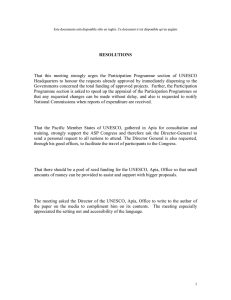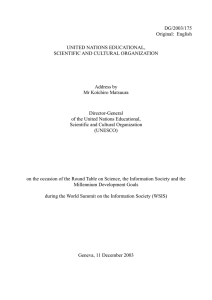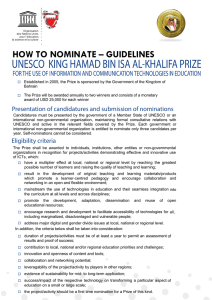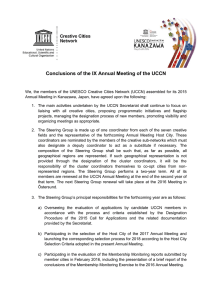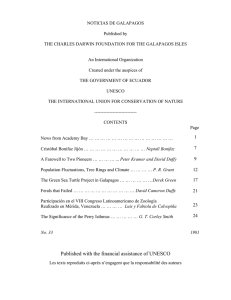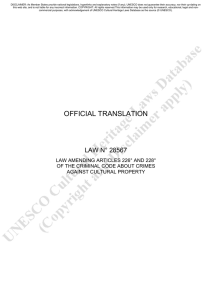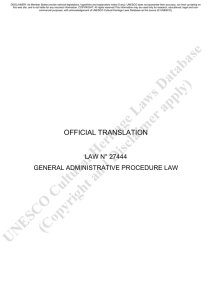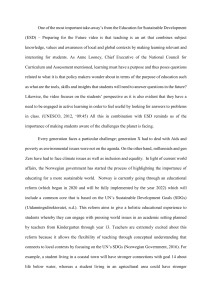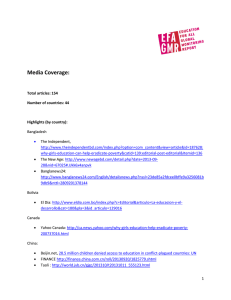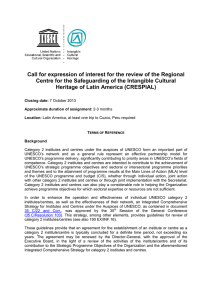Message from Mr Koïchiro Matsuura, Director-General of
Anuncio
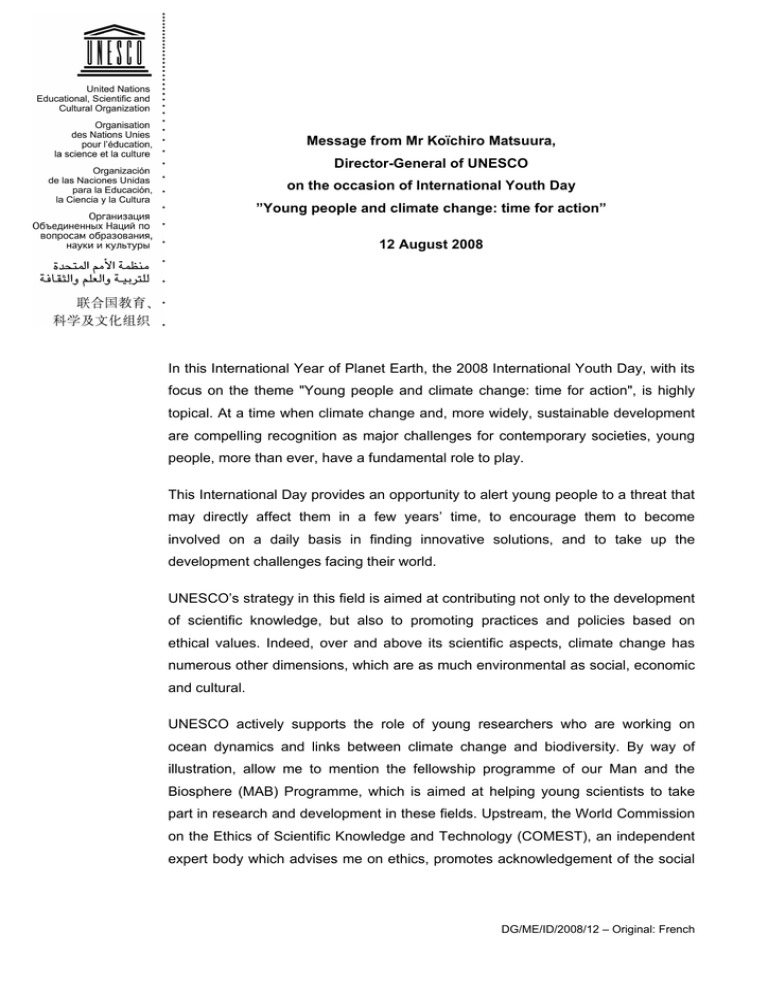
Message from Mr Koïchiro Matsuura, Director-General of UNESCO on the occasion of International Youth Day ”Young people and climate change: time for action” 12 August 2008 In this International Year of Planet Earth, the 2008 International Youth Day, with its focus on the theme "Young people and climate change: time for action", is highly topical. At a time when climate change and, more widely, sustainable development are compelling recognition as major challenges for contemporary societies, young people, more than ever, have a fundamental role to play. This International Day provides an opportunity to alert young people to a threat that may directly affect them in a few years’ time, to encourage them to become involved on a daily basis in finding innovative solutions, and to take up the development challenges facing their world. UNESCO’s strategy in this field is aimed at contributing not only to the development of scientific knowledge, but also to promoting practices and policies based on ethical values. Indeed, over and above its scientific aspects, climate change has numerous other dimensions, which are as much environmental as social, economic and cultural. UNESCO actively supports the role of young researchers who are working on ocean dynamics and links between climate change and biodiversity. By way of illustration, allow me to mention the fellowship programme of our Man and the Biosphere (MAB) Programme, which is aimed at helping young scientists to take part in research and development in these fields. Upstream, the World Commission on the Ethics of Scientific Knowledge and Technology (COMEST), an independent expert body which advises me on ethics, promotes acknowledgement of the social DG/ME/ID/2008/12 – Original: French and ethical dimension of climate change in various scientific curricula and in science teaching at university. But as lead agency for the United Nations Decade of Education for Sustainable Development (2005-2014), UNESCO is also doing much to sensitize the public to the problem of climate change. Young people, as citizens of the world, are at the heart of this educational action. Thus, the joint YouthXchange initiative of UNESCO and the United Nations Environment Programme (UNEP) recommends patterns of consumption and a lifestyle which are respectful of sustainable development. While climate change is a global problem, each of us has the capacity to change something in that regard. Increasing numbers of local and even individual initiatives will ultimately have an impact at the international level. I therefore urge young people to put all their dynamism, creativity and energy into this global combat, and I call upon governments and their civil society partners to help them to take action in order to build a world that is consonant with their aspirations. Koïchiro Matsuura DG/ME/ID/2008/12 – page 2
